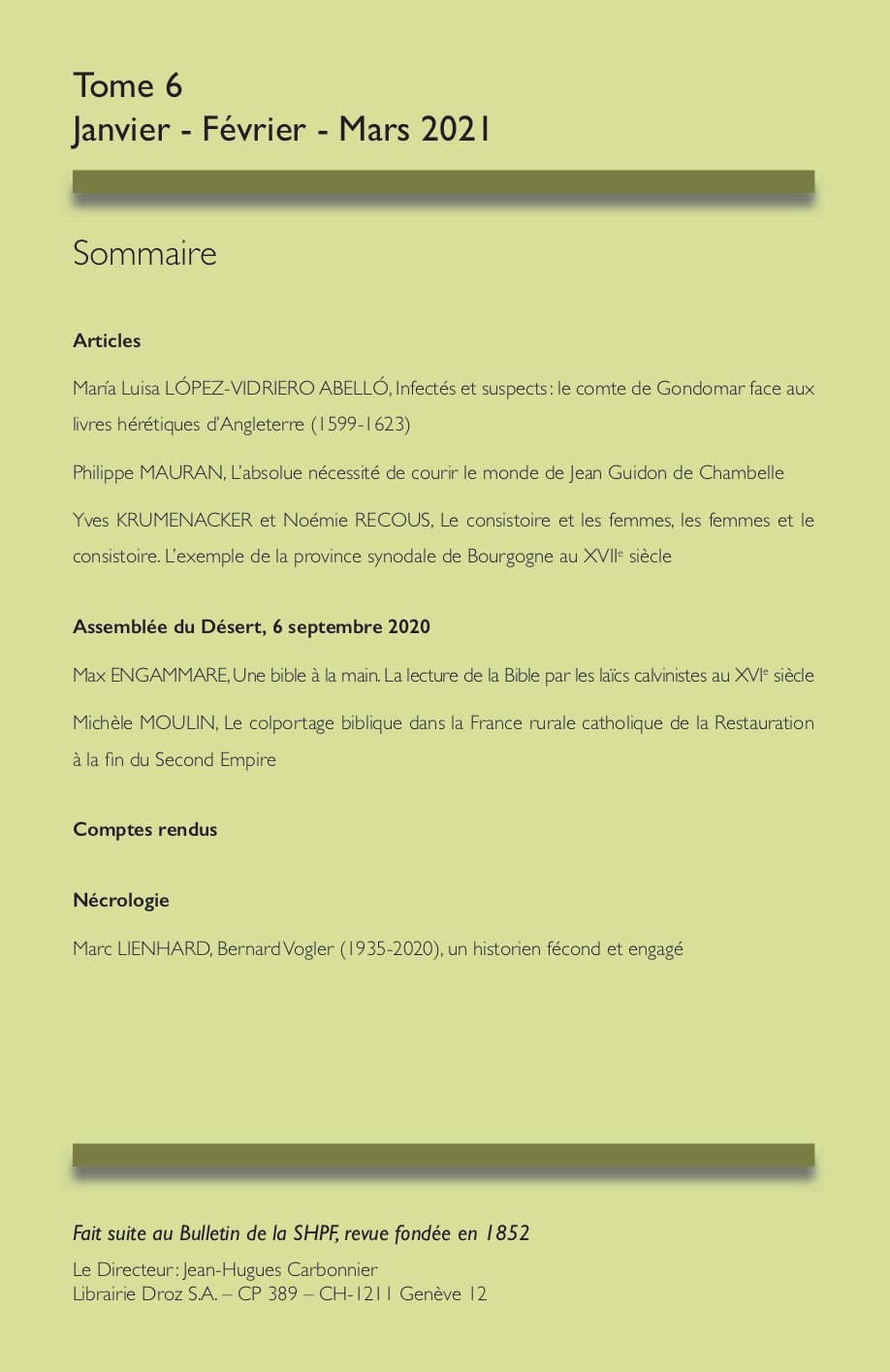Le colportage biblique dans la France rurale catholique de la Restauration à la fin du Second Empire
Abstract
After 1815, the peddling of Bibles in Catholic rural France began rather tentatively with the efforts of British and Swiss Biblical societies. During the July Monarchy, it enjoyed a quick growth owing to the newly launched evangelical societies of France and Geneva. Their openly proselytizing activity nevertheless elicited angry reactions from the Catholic Church and its clergy. The Roman Church was backed by the political powers during the second Republic, and even more so during the authoritarian Empire. Furthermore, in the 1860s and later, the peddling of Bibles began to decline for economic as well as cultural reasons, including the emergence of lower priced books and newspapers, the development of popular libraries, and competition from new ideologies. Nevertheless, the peddler, who always arrived ahead of the evangelist, had time enough to become a familiar and friendly figure in the country, offering a path to emancipation to people anxious for intellectual independence, but still deeply religious.
How to Cite
More Citation Formats
Most read articles by the same author(s)
